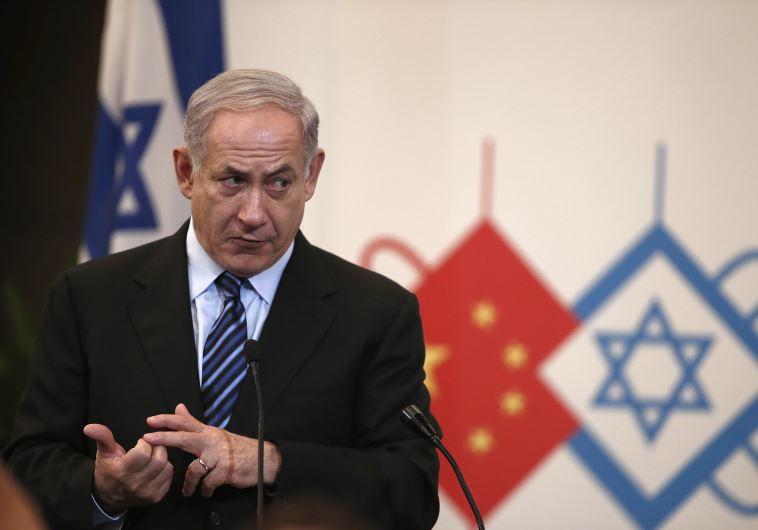Exclusive: Historic case against Bank of China for millions in terror financing dismissed
Nine-year landmark fight which riled geopolitics between Israel, China, US ends with a whimper.
 Netanyahu gives a speech during a gala dinner in Shanghai May 6, 2013Updated:
Netanyahu gives a speech during a gala dinner in Shanghai May 6, 2013Updated: